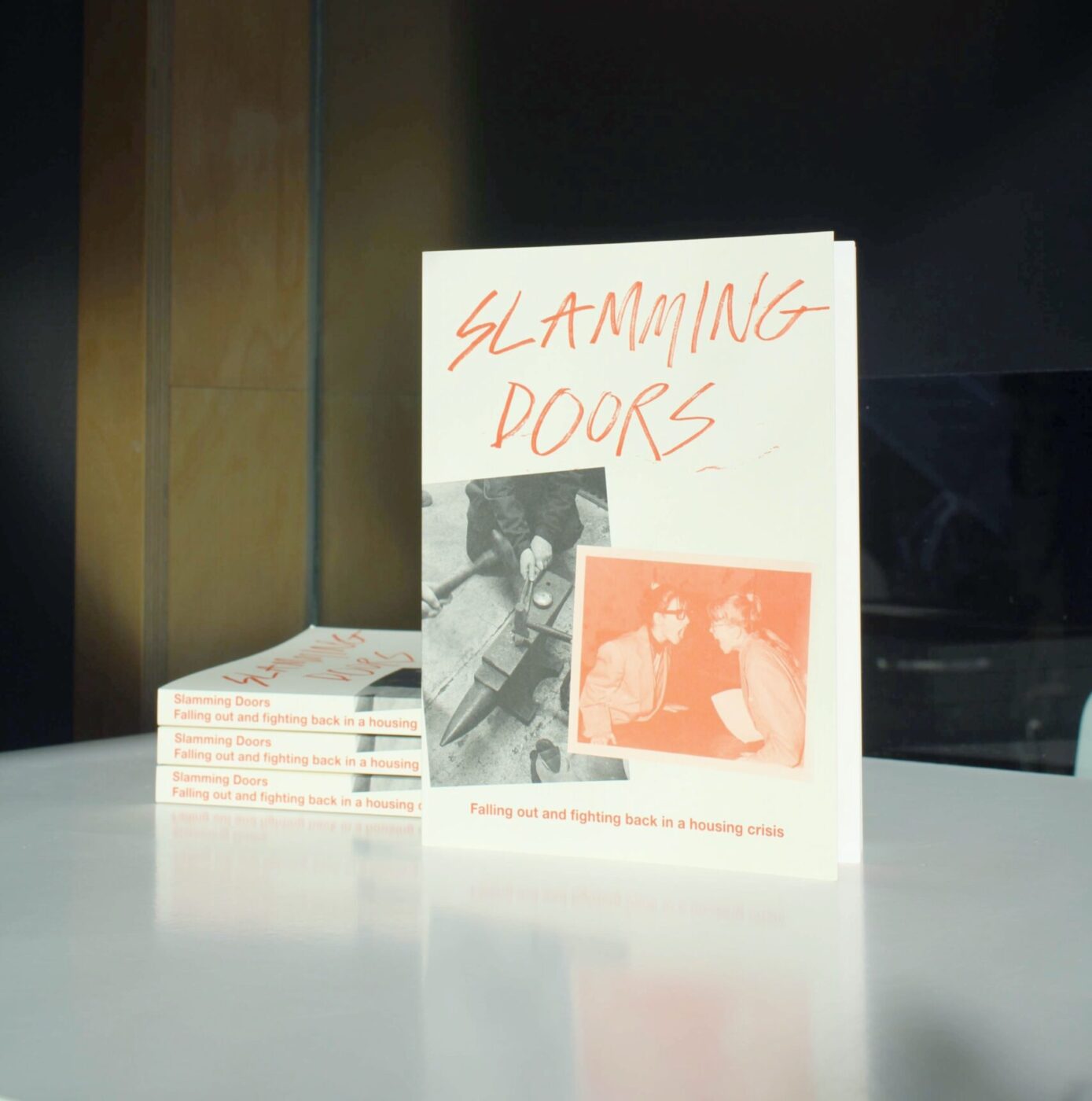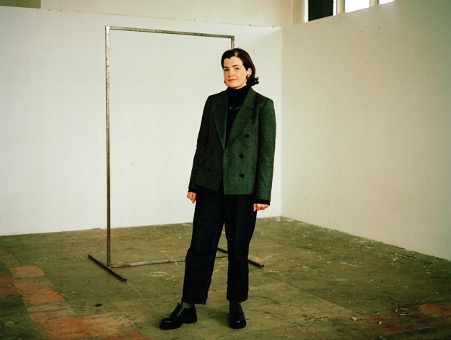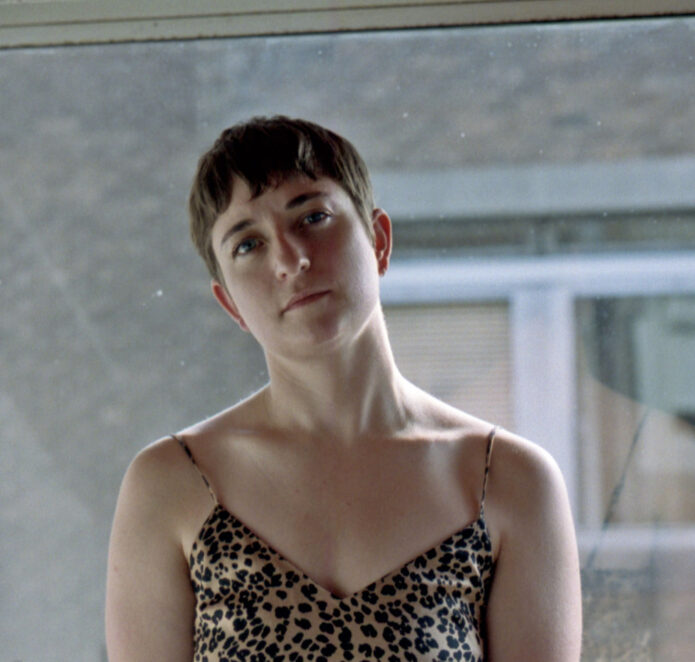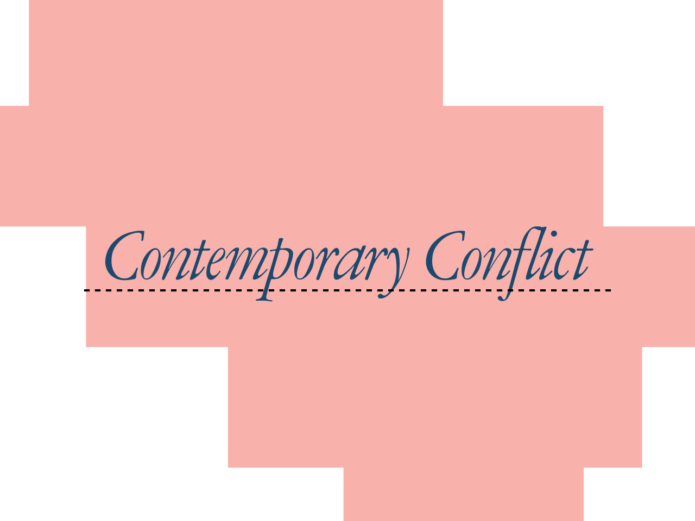 Slamming Doors. On Falling Out and Fighting Back in a Housing Crisis (2025). Photo: Evie Evans
Slamming Doors. On Falling Out and Fighting Back in a Housing Crisis (2025). Photo: Evie Evans Slamming Doors: New publication explores housing struggles, solidarity and collective resistance
Co-published by Framer Framed, Slamming Doors: Falling Out and Fighting Back in a Housing Crisis is a new publication that brings together writers, academics and community organisers to reflect on housing justice, community organising and feminist labour. Blending essays, interviews and archival materials, the book acts as a manual, an archive and a meeting place, asking, in the words of Lola Olufemi, ‘what can we build from this?’ In 2024, co-editor of Slamming Doors Winnie Herbstein, along with critic, curator and organiser René Boer, undertook the research project Contemporary Conflict within the fellowship programme organised collaboratively by Framer Framed and the Department of Political Science at the University of Amsterdam.
Read the introduction to Slamming Doors: Falling Out and Fighting Back in a Housing Crisis below.
Rooted in the histories of housing and community activism in Glasgow, the publication draws on decades of grassroots organising, self-build projects, and feminist housing movements. It reflects on DIY learning, reproductive labour, and mutual aid, and considers how art, research, and activism can redistribute resources, knowledge, and care.
Slamming Doors is not a static artist monograph, but a book that acts as a manual, an archive, a meeting place and a reference or, in the words of contributor Lola Olufemi, ‘an attempt at spreading the material out on the table, and asking what can we build from this?’ Olufemi’s text reimagines a user’s manual as a step-by-step guide to political insurrection and intimacy. Historian Hannah Proctor explores the emotional dynamics of collective action, drawing connections from the Kurdish women’s movement to the ZAD commune in France. In conversation with organiser Dean Spade, questions of failure, conflict and intergenerational learning point to how historical knowledge sustains contemporary struggle.
The book also revisits The House That Jill Built (1998) and the story of Take Root, a women’s self-build group in Glasgow, reconstructed by curator and academic Kirsten Lloyd. At its core are two interviews with housing and anti-poverty activist Cathy McCormack (1952–2022), whose voice anchors the publication in lived experience, humour and resistance.
Through essays, transcripts and archival material, Slamming Doors mobilises text, image and conversation to examine how collective struggles are recorded, shared and kept alive.
Editors: Winnie Herbstein & Mason Leaver-Yap
Contributions: Lola Olufemi, Hannah Proctor, Dean Spade, Taking Root, Kirsten Lloyd, Cathy McCormack
Publishers: Framer Framed, supported by University of Edinburgh Arts Collection
Design: HIT Studio
Year: 2025
English
Full color
ISBN: 9789-0834-54344
€18,–
The publication is now available in the Framer Framed shop or online.
Introduction
by Winnie Herbstein
Taped to the front of Cathy McCormack’s archive folder is a hand-written contents page that reads
Palestine
Jimmy Reid
Welfare Reforms
John Pilger
Pedagogy of the Oppressed.
A people and a land fighting for liberation; a Glasgow trade unionist who told us that ‘the rat race is for rats’; the erasure of state-led support structures in lieu of private profit; an anti-authoritarian journalist; and Paulo Freire’s teachings on emancipatory pedagogy. This seemingly disparate list indicates the intersection of struggle under oppression and the different ways we organise and educate to fight against it.
In the years since beginning work on Slamming Doors, a publication rooted in histories of housing struggles in Glasgow, the world has borne witness to devastating genocides from Sudan to Gaza, Congo to Ethiopia, enacted under imperialist and settler-colonial logic. While matters concerning access to housing and conflict in grassroots organising may seem far removed from the enormity of these atrocities, they are all, in the end, symptoms of the capitalist conditions we find ourselves under.
*
Late in the evening on 30 April 2024, the New York Police Department forcibly cleared a Palestinian solidarity encampment from the University of Colombia’s lawn. Students had occupied the area for the previous 14 days in protest to the university’s ‘business as usual’ stance with the Israeli state.
The day after the clearing, photographs of the small patch of grass that held the peaceful protest began to circulate online. Emptied of the makeshift structures of the encampment, the university lawn was transformed into a patchwork townscape. Where tents had been, squares bleached the grass in shades of whites, yellows and greens, the main thoroughfare etched in brown across the site. This topography conjures the movements of students and allies: their fleeting architecture of occupation appears as an archaeological outline of how they organised and lived together in protest. In time the dead grass will regrow, as the university forces green shoots as a cover up for its institutional violence. I trace this floorplan of the occupation across my screen. An encampment, an architecture, an archeology, an archive. But what is left after the grass grows back?
*
The starting point for Slamming Doors is a trilogy of short films I made in Glasgow between 2018 and 2021. Studwork (2018), Minutes (2019) and Dampbusters (2021) grew out of an interest in who builds the spaces we inhabit, but they became meditations on community organising, reproductive labour, histories of housing struggles, and how we record, disseminate and learn from these stories.
Filmmaker Jean-Luc Godard stated that ‘the problem is not to make political films, but to make films politically’, placing an emphasis on the means of production and methods of distribution as being as essential as the film’s message. While the proximity of contemporary art to political struggle is one that remains sticky, I believe that there is still something useful in their association. Beyond a more hopeful idea that poetics can be of service to the fight, there is also the potential in the cultural sector for redistribution. In places where funding is possible, this could be the redistribution of finance, but it could also be the redistribution of time, space, resources and knowledge. The sale of a film funds a year’s rent for the Slaghammers’ workshop; the personal archive is retrieved from the skip, and the fading VHSs are digitised, subtitled and redistributed; physical materials from the exhibitions are re- purposed and fees are paid to support perennial volunteers.
These films, and this book, are embedded in Glasgow, a city I called home for over ten years. Beyond the locality of this particular place, the book is also a reflection of ongoing relationships with people, communities and spaces of solidarity. It is within this framework that I invited writers, academics and activists to contribute to this publication, whose texts are included here alongside reproductions of the archival imagery that has been instrumental in the research of these films.
Slamming Doors is not a static artist monograph, but rather a publication that is at once a manual, an archive, a meeting place, a reference or – in the words of writer Lola Olufemi – an attempt at ‘spreading the material out on the table, and asking “what can we build from this?”’ In ‘A user’s manual for the cultivation of political will’, Olufemi forms fictional accounts within a step- by-step guide, turning instructions for welding metal into a series of vignettes to explore moments of insurrection, organisation and intimacy.
Following this is an essay by historian Hannah Proctor, which points to the knottiness of group antagonism within political movements, exploring the ‘emotional experience of group dynamics’ and the difficulty in finding records of these narratives. Coming from a largely historical perspective, Proctor offers examples from the Kurdistan Workers‘ Party (PKK) to the Palestinian Youth Movement, from the ZAD commune in Nantes to the women’s liberation movement in the US.
In my interview with Dean Spade, an organiser, writer and teacher based in the US, we discuss his work in mediating conflict in mutual aid and grassroot groups. I ask him how one might archive the mobilisations that ‘fail’. Spade outlines an importance in intergenerational learning, which points towards a wider theme in the book: the activation of historical knowledge as a tool to support contemporary struggle.
The ‘House That Jill Built’ (1998) introduces the story of Take Root, a women’s self-build group in Glasgow that operated from the early nineties to the early noughties. The text is a transcript taken from a documentary of the same name, made shortly before the group were scheduled to start their build. The wider story of Take Root and its legacy is pieced together by academic and curator Kirsten Lloyd in her essay ‘Taking root and raising roofs: Reimagining the housing question.’
At the core of Slamming Doors, as well as the source of the book’s title, are transcriptions of two interviews with my dear friend Cathy McCormack (1952–2022). McCormack was a housing and anti-poverty activist from Glasgow who was instrumental in raising awareness in the UK around the relationship between poor housing and poor health. The two interviews included here were recorded at her flat in Easthall, Easterhouse, where we spent many hours together.
The interviews with Cathy were made a year or so before she passed away. How they are transcribed is how she speaks. As I read, I can see her, sitting round the kitchen table in her downstairs flat, the door open to the garden, with a bird bath populated by a perpetual host of sparrows. By including our interviews here in full, I wish to make available further ways in which her vital work can be accessed.
This book is dedicated to the memory of Cathy McCormack; to her ferocity and humour and to all the noses she put out of joint.
About
Winnie Herbstein graduated from Glasgow School of Art (Environmental Art). She studied Women in Construction at the City of Glasgow College and is a founding member of Slaghammers, a woman, trans and non-binary metal workshop. Her work focuses on historical and contemporary forms of organising, in relation to housing and the architecture and formation of space. She was a resident at the Rijksakademie, Amsterdam (2021-2023).
In 2024, together with researcher René Boer, Herbstein was fellow of the research project Contemporary Conflict within the fellowship line Community, Democracy and the Urban Environment, a collaboration between Framer Framed and the Department of Political Science at the University of Amsterdam (UvA).
Bookshop Selection / Collectives / Art and Activism /
Network

Hannah Proctor
Researcher, Writer


